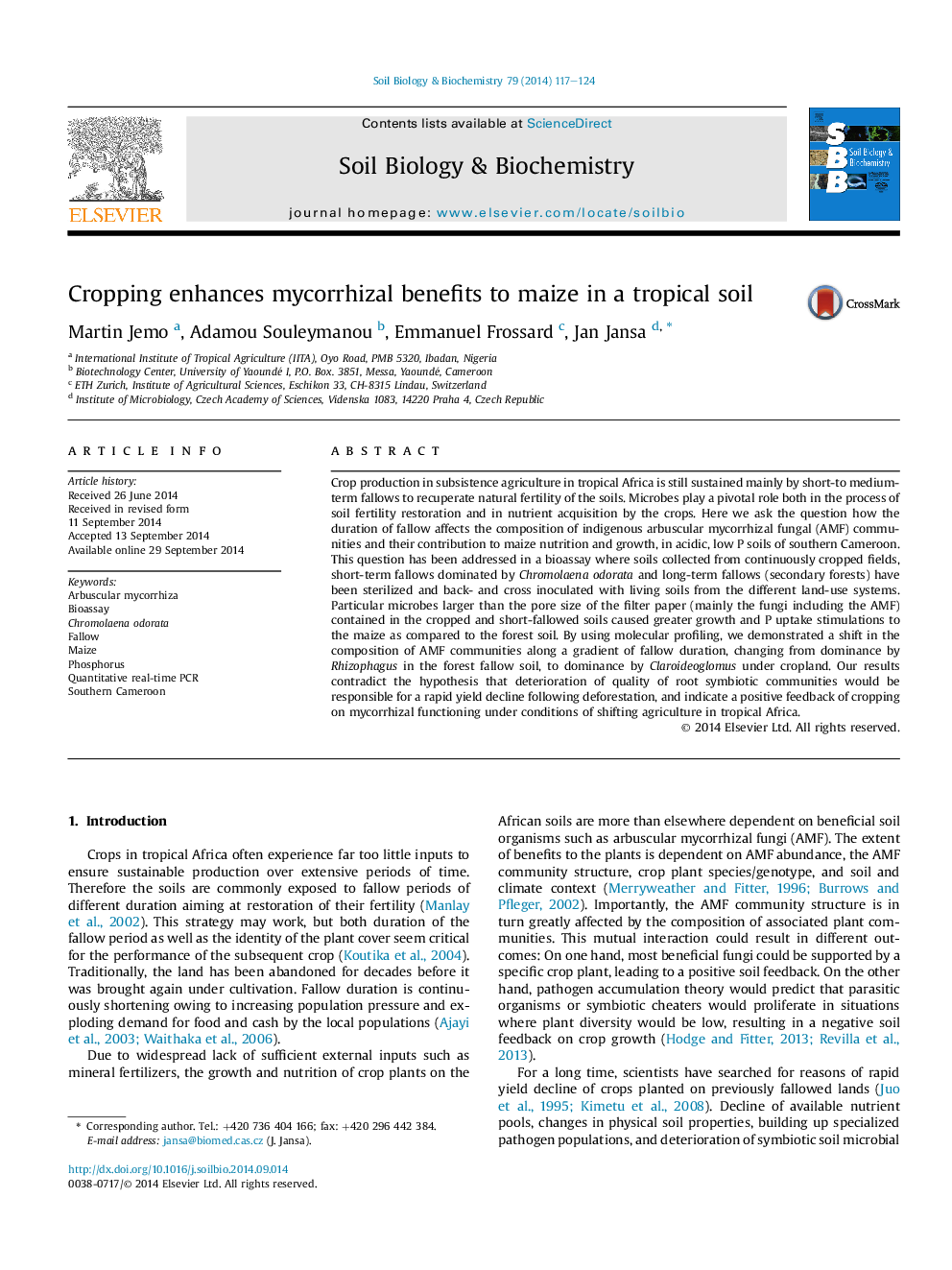| کد مقاله | کد نشریه | سال انتشار | مقاله انگلیسی | نسخه تمام متن |
|---|---|---|---|---|
| 2024647 | 1542605 | 2014 | 8 صفحه PDF | دانلود رایگان |
• Role of mycorrhizal symbiosis in tropical crop production remains poorly quantified.
• Here we tested how fallow duration changed mycorrhizal benefits to maize.
• Forest fallow soil caused the lowest stimulation of maize growth and P uptake.
• The extent of maize growth improvement was explained by enhanced P acquisition.
• Shift in symbiotic function coincided with compositional changes of the mycorrhizas.
Crop production in subsistence agriculture in tropical Africa is still sustained mainly by short-to medium-term fallows to recuperate natural fertility of the soils. Microbes play a pivotal role both in the process of soil fertility restoration and in nutrient acquisition by the crops. Here we ask the question how the duration of fallow affects the composition of indigenous arbuscular mycorrhizal fungal (AMF) communities and their contribution to maize nutrition and growth, in acidic, low P soils of southern Cameroon. This question has been addressed in a bioassay where soils collected from continuously cropped fields, short-term fallows dominated by Chromolaena odorata and long-term fallows (secondary forests) have been sterilized and back- and cross inoculated with living soils from the different land-use systems. Particular microbes larger than the pore size of the filter paper (mainly the fungi including the AMF) contained in the cropped and short-fallowed soils caused greater growth and P uptake stimulations to the maize as compared to the forest soil. By using molecular profiling, we demonstrated a shift in the composition of AMF communities along a gradient of fallow duration, changing from dominance by Rhizophagus in the forest fallow soil, to dominance by Claroideoglomus under cropland. Our results contradict the hypothesis that deterioration of quality of root symbiotic communities would be responsible for a rapid yield decline following deforestation, and indicate a positive feedback of cropping on mycorrhizal functioning under conditions of shifting agriculture in tropical Africa.
Journal: Soil Biology and Biochemistry - Volume 79, December 2014, Pages 117–124
